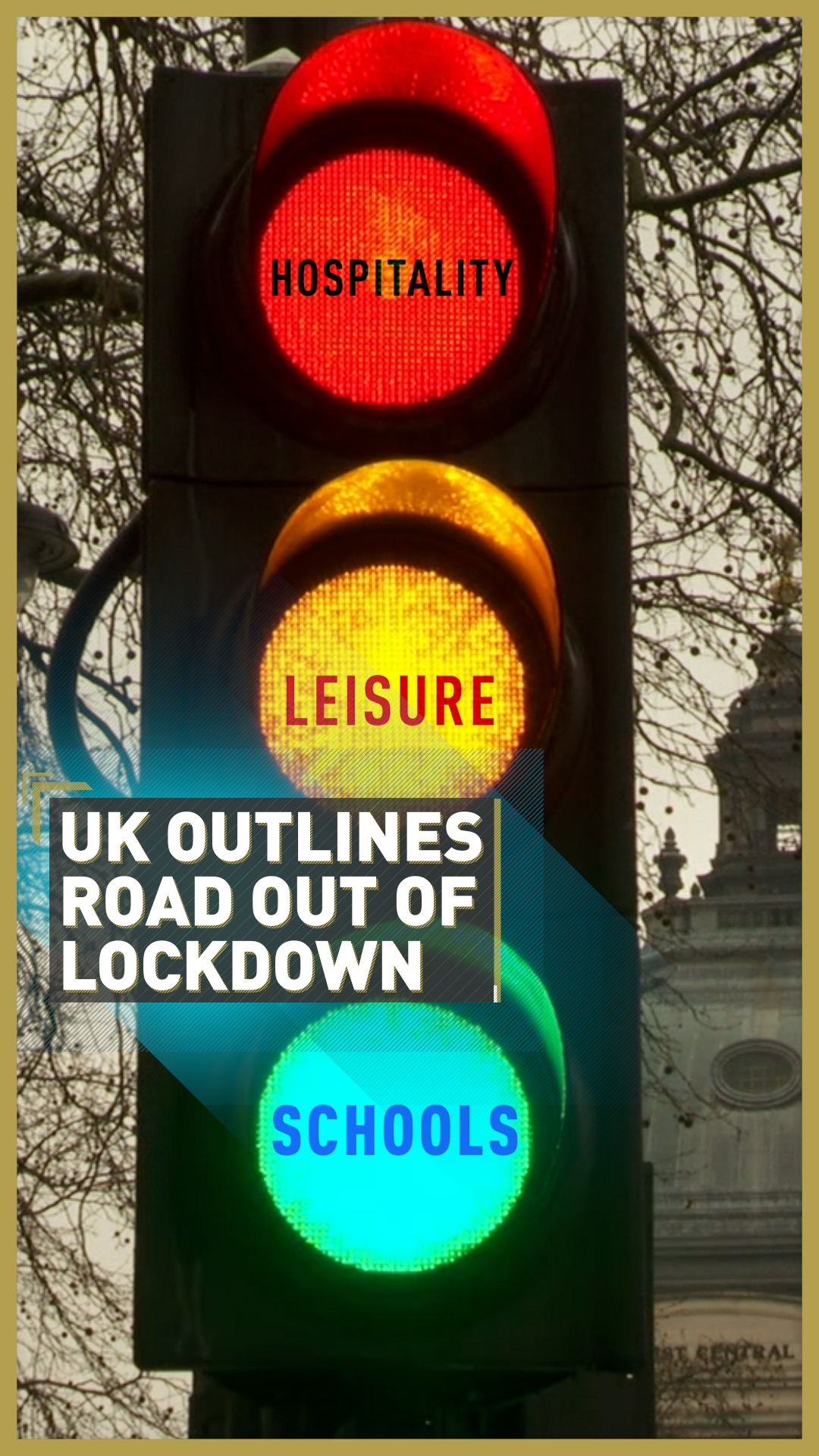01:50

UK Prime Minister Boris Johnson has said the world must learn to live with the threat of COVID-19 as he announced a four-step roadmap to lifting the current lockdown in England.
Johnson addressed the House of Commons on Monday and outlined each step, each separated by five weeks, that he hopes will result in all restrictions being lifted between March 8 and June 21.
There are also plans to increase the already rapid rate of vaccinations to ensure all adults in the UK have had the opportunity to be vaccinated by the end of July.
As he prepared to reveal his COVID-19 roadmap, Johnson said: "There is no credible route to a zero-COVID Britain or indeed a zero-COVID world.
"We cannot persist indefinitely with restrictions that debilitate our economy, our physical and mental wellbeing and the life chances of our children.
"And that is why it is so crucial that this roadmap is cautious but also irreversible. We're setting out on what I hope and believe is a one-way road to freedom."
Each step on England's roadmap will be subject to four tests linked to data:
1. The speed of the vaccine roll-out.
2. Vaccines successfully bringing down hospitalizations.
3. Cases low enough to prevent the NHS being overwhelmed.
4. New variants not posing a threat to the effectiveness of vaccines.
The first step is split into two stages. Stage one will see schools reopen on March 8 and stage two will permit six people from two households to mix from March 29.

UK Prime Minister Boris Johnson says there will be 'no zero-COVID world' after announcing his four-step roadmap that aims to gradually lift lockdown restrictions between March 8 and June 21. /AFP
UK Prime Minister Boris Johnson says there will be 'no zero-COVID world' after announcing his four-step roadmap that aims to gradually lift lockdown restrictions between March 8 and June 21. /AFP
Stage one: part 1 (March 8)
- All primary and secondary school pupils will be allowed back, while all indoor and outdoor sport at schools will be permitted.
- Care home residents will also be allowed to have one indoor visitor, who must be tested beforehand and wear PPE during the visit. Residents can hold hands with visitors but aren't permitted to have any other close contact.
- People can meet one other person outdoors for a walk, coffee, picnic as well as exercise.
Stage one: part 2: March 29
- Six people from two different households will be allowed to meet outside – this is the same "rule of six" that was introduced following the first lockdown last spring.
- Outdoor sport between individuals and teams will return for both children and adults, while people will be no longer advised to stay in their local area.
- People will be urged to keep travel to a minimum but there will be no distance limits on any journeys.

From March 8, all primary and secondary schools in England will be allowed to reopen and indoor and outdoor sport will also be permitted at schools. /AFP
From March 8, all primary and secondary schools in England will be allowed to reopen and indoor and outdoor sport will also be permitted at schools. /AFP
Stage 2: April 12
- All shops will be allowed to reopen.
- One household can spend a night overnight somewhere else in the UK, but hotels and bed and breakfast venues won't be allowed to reopen.
- Pubs and restaurants will be allowed to reopen for outdoor dining, while gyms, hairdressers, libraries, theme parks and other shared public spaces will open their doors.
Stage 3: May 17
- The rule of six will be extended indoors as well as outdoors and pubs and restaurants will also be allowed to host people in indoor spaces.
- Outdoor events will also return, with either 4,000 spectators or 50 percent of capacity (whichever is lowest) permitted at small stadiums.
- Larger stadiums will be allowed to hold 10,000 people or 25 percent of capacity (whichever is lowest).
Stage 4: June 21
- Nightclubs and other major events will be allowed to return.
- Weddings and funerals will have no limits on number of attendees.
Source(s): Reuters

